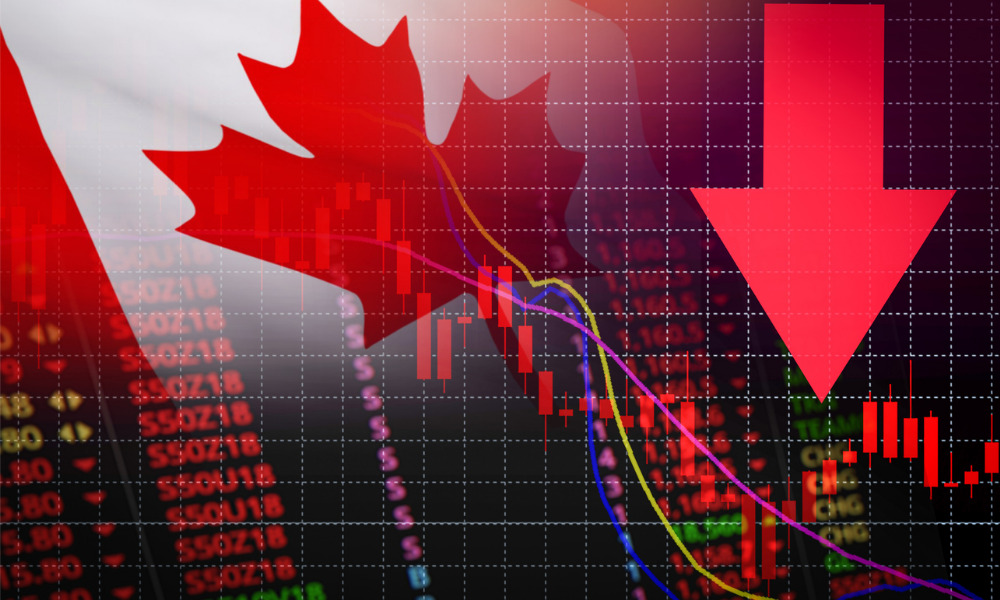Economists deliver their verdict

At this point, a recession is a likely outcome for the Canadian economy, according to a recent Bloomberg poll of economists.
Doug Porter, chief economist at BMO Capital Markets, said that the odds of a recession are now “too high for comfort.”
“We rank the odds of recession as being less than 50/50 over the next year, but it will be a close call. The fact is that we are likely looking at a cumulative rate hike of 300 basis points (or a bit more) in North America, and that is a very serious amount of tightening in a single year, which at the very least will cut growth close to zero,” Porter said.
David Doyle, North American economist and Canadian market strategist at Macquarie Group, offered a more pessimistic forecast of roughly 70% odds of recession. This will be fuelled by “extreme levels” of household debt and residential investment, coupled by the economy’s lack of growth drivers aside from housing.
“Our baseline is for a recession ahead in 2023,” Doyle said. “We forecast Canada being more severely impacted than other developed economies, such as the US.”
Read more: Desjardins offers backing to Trudeau on inflation
Avery Shenfeld, chief economist at CIBC Capital Markets, stressed that Canada is “only one more stroke of bad fortune” from plunging headlong into a recession by the first half of 2023.
“Excessive rate hikes in either the US or Canada could tip us into an outright downturn. A further shock to world food and energy prices would make it extremely difficult for central banks to contain inflation expectations while keeping the economy growing,” Shenfeld said.
Stephen Brown, of Capital Economics, struck a more optimistic tone, placing the probability of a recession within the next 12 months at about 25%.
“That said, we should also acknowledge that the Canadian economy is enjoying a sizeable tailwind from higher commodity prices, which should support GDP growth over the next few quarters,” Brown said. “The extent to how deep the recession could be will depend on how much house prices fall.”
Jean-Francois Perrault, senior vice-president and chief economist at Scotiabank, said he doesn’t believe that a recession is coming to Canada.
“There is still lots of pent-up demand, balance sheets remain strong, commodity prices are reasonably high and job vacancies are at record levels. That provides a cushion to the blow to spending that inflation and interest rates are causing,” Perrault said.



